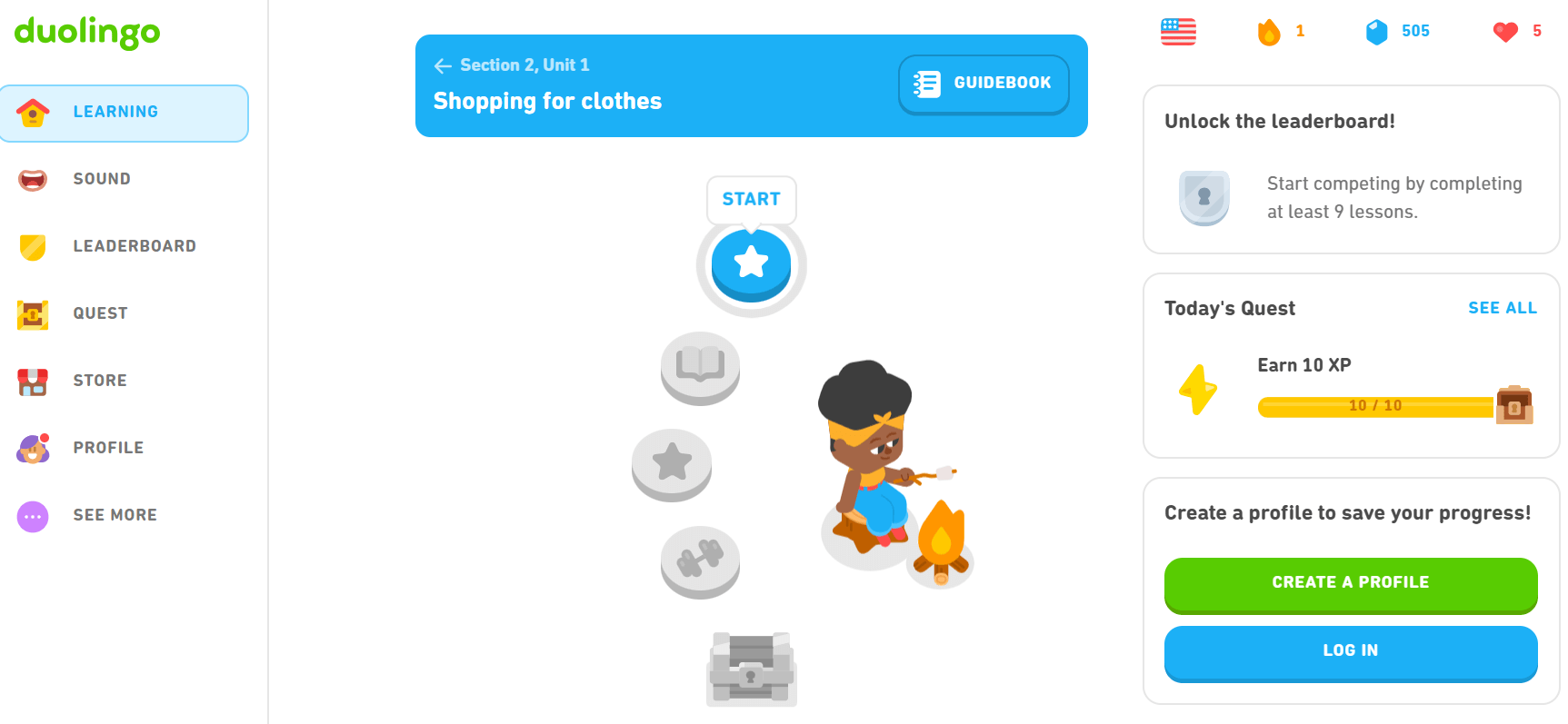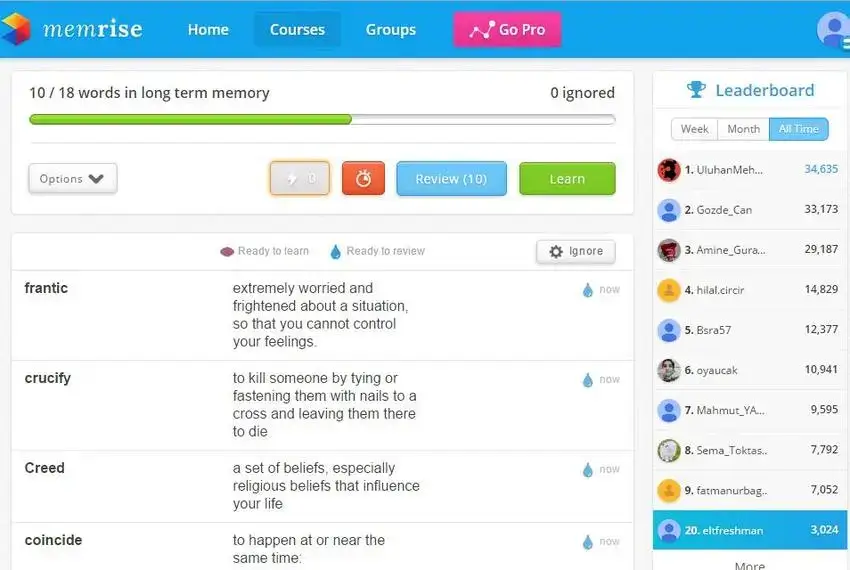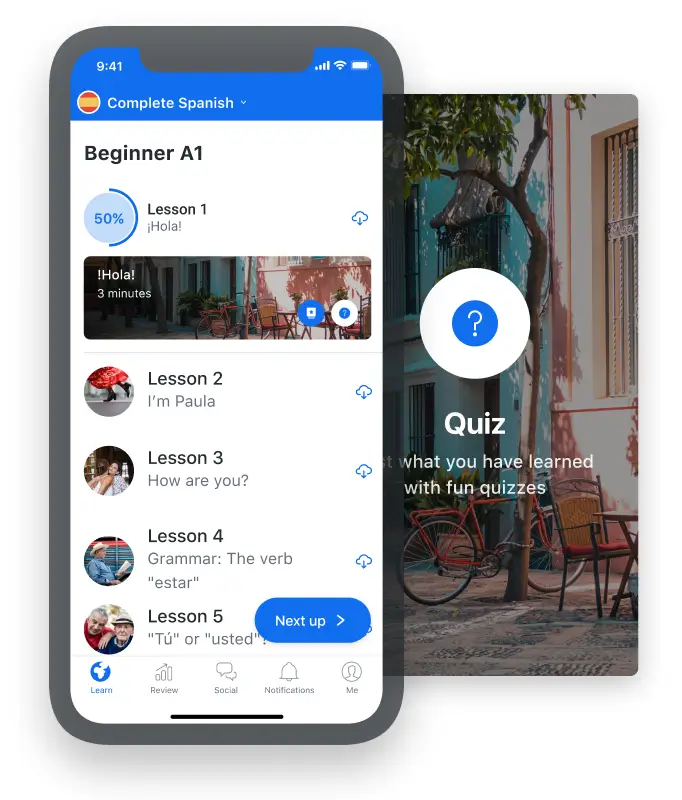Hey, Want to Learn English Without Paying a Penny?
Let’s be honest—learning English can feel like climbing a mountain. You’ve got grammar rules, tricky vocabulary, and pronunciation that sometimes just doesn’t make sense.
But here’s the good news: in 2025, there are amazing free apps that make English learning easy, fun, and something you’ll actually want to do. All you need is your phone, a few spare minutes, and maybe a cup of coffee. ☕
I’ve tested dozens of apps, and here are 7 that really work.
Best Free Apps to Learn English
1. Duolingo – Gamified Learning That’s Actually Fun
Duolingo is like playing a game while secretly learning English. You earn points, unlock levels, and get adorable encouragement from their green owl mascot.
- Best for: Beginners to intermediate learners
- Why it works: Short, daily lessons keep you consistent.
- Pro Tip: Turn on notifications—they’ll guilt-trip you into learning every day.

<Duolingo web home screen> -> Image source: Duolingo web
2. BBC Learning English – Learn from the Pros
This is packed with audio, video, and reading materials straight from the BBC. The lessons are short but packed with useful phrases you’ll actually use.
- Best for: Improving listening skills & pronunciation
- Why it works: Authentic, real-world English from native speakers.
3. Hello English – Perfect for True Beginners
If you’re starting from scratch, Hello English walks you through the basics with fun quizzes and games.
- Best for: Zero to low-level learners
- Why it works: Combines grammar, vocabulary, and conversation practice in one app.
4. LingQ – Learn from Real Content
LingQ lets you read and listen to real English articles, stories, and podcasts while learning new words in context.
- Best for: Intermediate to advanced learners
- Why it works: Context-based learning helps you remember words faster.
5. Memrise – Learn from Native Speakers
Memrise uses short, real-life video clips so you can hear how people actually speak—not just textbook English.
- Best for: Speaking & listening skills
- Why it works: Seeing and hearing real people makes the language feel alive.

<Memrise web word tracking screen> -> Image source : Memrise app (screenshot captured by site owner)
6. Busuu – Practice with Real People
Busuu not only teaches you but also lets you talk to native speakers who can correct your sentences.
- Best for: Conversation practice
- Why it works: Instant feedback from real humans—better than any AI.

<Busuu mobile app screenshot> -> Image source: Busuu app (screenshot captured by site owner)
7. Tandem – Your Global Language Exchange Buddy
With Tandem, you can chat, voice call, or even video call with native English speakers.
- Best for: Advanced learners & conversation practice
- Why it works: Real conversations improve fluency faster than any grammar book.
How to Get the Most Out of These Apps
- Stick to one or two apps at first—don’t try to use them all at once.
- Practice every day, even if it’s just 10 minutes.
- Mix active learning (lessons) with passive learning (listening to English podcasts, watching shows).
Detailed Comparison Table: Best Free Apps to Lean English in 2025
Here’s a quick comparison table so you can choose the app that best fits your learning style.
| App Name | Pros | Cons | Best For |
|---|---|---|---|
| Duolingo | * Fun gamified lessons keep you motivated * Quick daily practice fits busy schedules * Wide range of languages | * Limited speaking practice * Some advanced topics require premium | Beginners, casual learners who want daily habit-building |
| BBC Learning English | * High-quality audio & video lessons * News-based content improves listening & vocabulary * Completely free | * No interactive speaking features * Website interface feels outdated | Intermediate learners focusing on listening & pronunciation |
| Hello English | * Strong grammar explanations * Quizzes & games for engagement * Good for Asian learners | * Ads can be distracting * Limited for advanced learners | Learners in Asia, especially India & Southeast Asia |
| LingQ | * Import your own reading & audio content * Tracks vocabulary automatically * Immersion-based learning | * Interface can feel complex at first * Requires self-discipline | Self-motivated learners who enjoy reading & listening |
| Memrise | * Uses real native speaker videos * Spaced repetition for better memory * Great for vocabulary expansion | * Less focus on grammar * Speaking practice is limited | Learners who want to improve vocabulary quickly |
| Busuu | * AI-powered grammar feedback * Conversation with native speakers * Clear, structured lessons | * Free version has limited lesson access * Premium needed for full features | Learners who want structured lessons & speaking practice |
| Tandem | * Chat with real native speakers * Voice & video calls for speaking * Learn cultural context | * Quality of partners can vary * Requires good internet & confidence to talk | Learners who want real conversation experience |
* My recommendation : If you’re a beginner, start with Duolingo; if you want real conversation, try Tandem.
Final Thoughts
Learning English in 2025 has never been easier—or cheaper. Whether you’re commuting, waiting in line, or relaxing at home, you can fit in a quick lesson anytime.
So, which app are you downloading first?
My tip: Start today, and in a few months, you’ll surprise yourself with how much you’ve improved. 🚀

